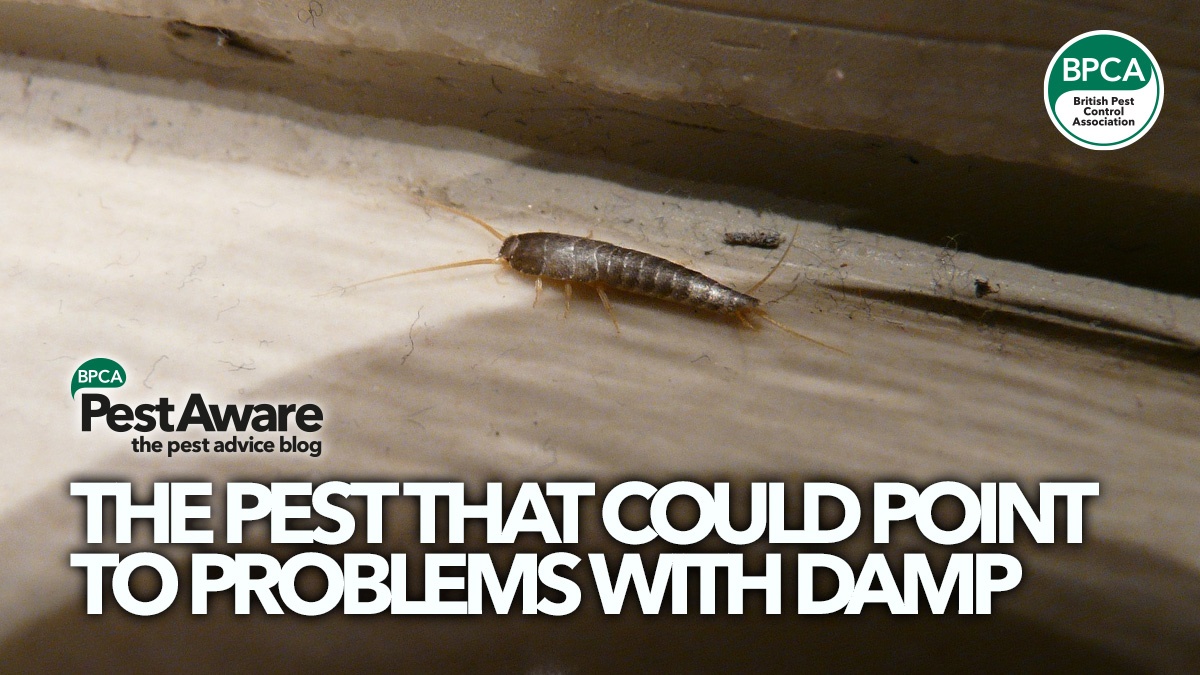PESTAWARE
A harmless pest could indicate damp problems in the home that may need attention, according to pest experts at a national trade body.

British Pest Control Association (BPCA) says Silverfish don’t bite or spread diseases to people, but they can damage wallpaper and could be a sign of damp inside the property.
Silverfish are often first spotted when they become trapped in baths, basins and sinks in the bathroom or kitchen.
John Horsley, Technical Support Officer at BPCA said: “Silverfish are nocturnal in habit, so it’s possible that householders won’t know about an infestation until they discover a Silverfish that has become trapped somewhere it can’t climb out of.
“They are carrot-shaped insects, around 12mm long and feed on residues of starchy substances such as glue, wallpaper paste and carbohydrate food debris.
“They thrive in damp environments, so can become more active in winter when colder weather can cause condensation inside some homes, but an infestation of Silverfish could be an indicator of persistent damp conditions that may need attention.”
Adult Silverfish can live for more than three years. Eggs are laid in cracks and crevices and the nymphs grow by an indefinite number of moults.
If a serious infestation is identified, BPCA recommends seeking professional help and advice to tackle the problem.
John added: “The first step is to use an insect monitor to check the extent of the infestation in your property. In small infestations, these monitors may be enough to control the silverfish while the damp issue is resolved.
“However, to prevent future infestations – and avoid issues with mould – it’s important that any persistent dampness is also corrected.
“For heavy infestations an insecticide labelled ‘for the control of Silverfish’ could be used directly onto the insect and into the harbourage area – however, BPCA strongly recommends anyone using pesticides MUST ensure the product is legal, suitable for the job and applied exactly in accordance with the instructions on the label.
“If in any doubt, or if the infestation appears to be severe, contact a pest professional such as a BPCA member.”
A BPCA member company will have the technical knowledge and experience to apply products in an efficient manner while minimising risk to the environment and non-target species.
BPCA members:
• Carry the correct insurances
• Are trained and qualified technicians
• Are assessed to the British Standard in pest management EN 16636
• Follow BPCA’s Codes of Best Practice.
To find a BPCA member visit: bpca.org.uk/find.
Source: Online